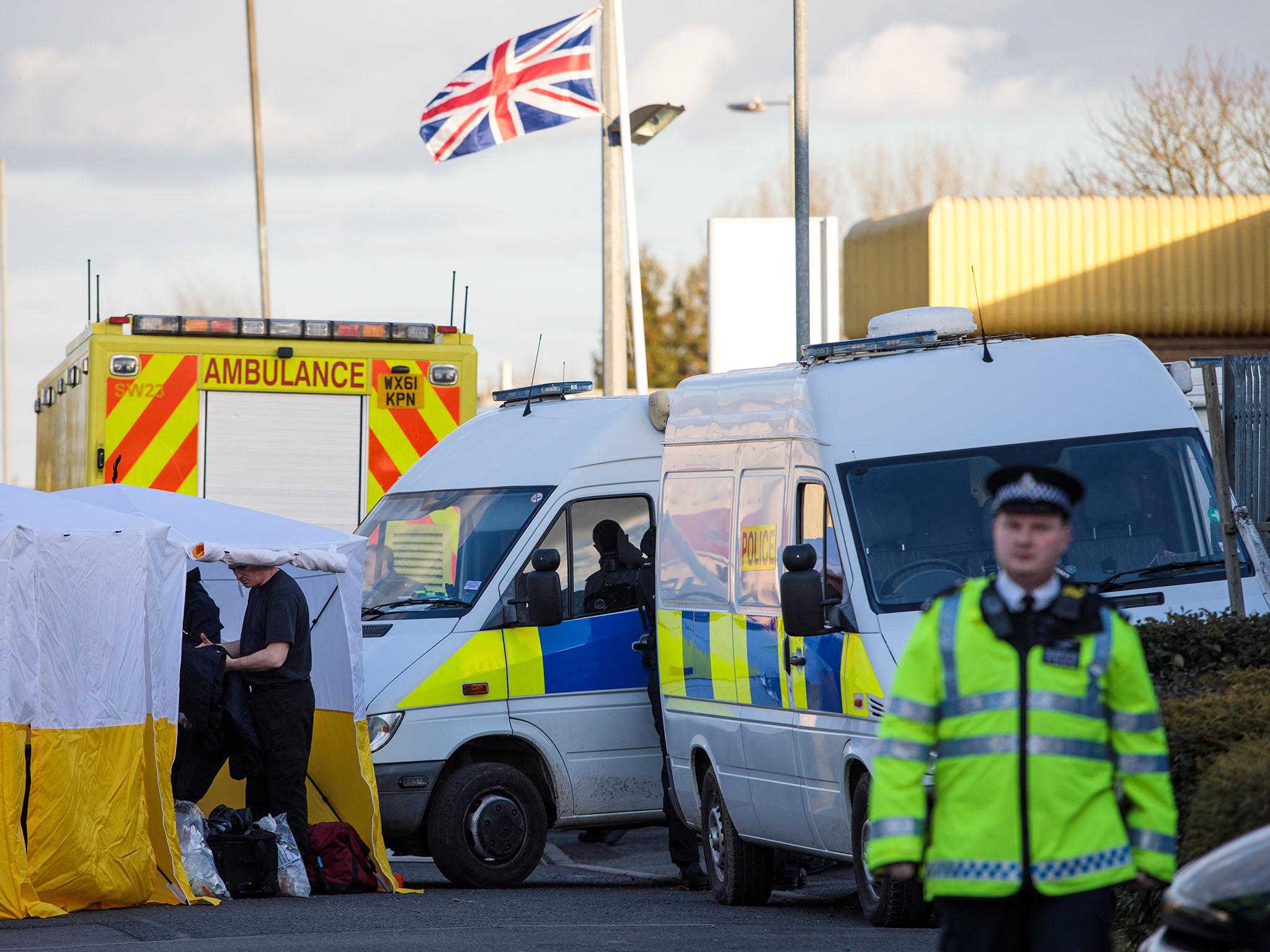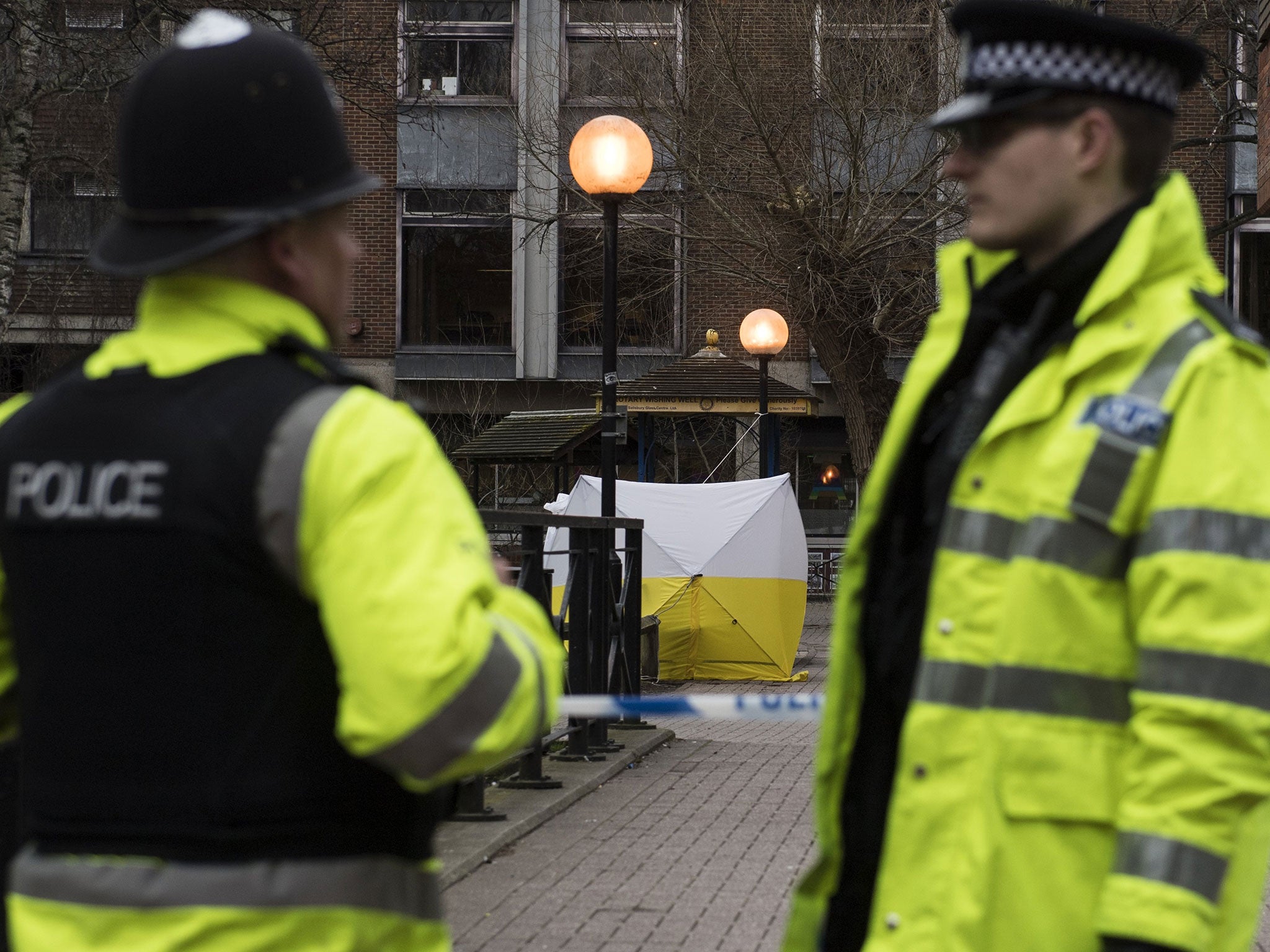Salisbury nerve agent attack: More than 130 people could have been exposed, Theresa May says
Prime Minister says Sergei Skripal and his daughter may never recover from attack
More than 130 people could have been exposed to the military-grade nerve agent used in the attack on former Russian spy Sergei Skripal and his daughter, Theresa May has said.
In a statement to Parliament, the Prime Minister said 18 nations had announced they were expelling a total of more than 100 Russian intelligence officers in response to the attack in Salisbury. Since her statement the number of countries has risen to more than 20.
They include 60 spies from the United States, as well as spies operating in Canada, Ukraine, Albania and 14 European Union member states.
“This is the largest collective expulsion of Russian intelligence officers in history,” Ms May said.
“Together we have sent a message that we will not tolerate Russia's continued attempts to flout international law and undermine our values.”

Ms May said Mr Skripal and his daughter, Yulia, may never recover from the nerve agent attack.
She said the Government had evidence Russia had explored ways of exporting nerve agents over the past decade, likely for the purposes of assassinations.
Ms May said Russia has so far advanced 21 different arguments in an attempt to distance itself from the attack.
Speaking at the start of a debate on national security and Russia, she said: “Sergei and Yulia Skripal remain critically ill in hospital. Sadly, late last week, doctors indicated that their condition is unlikely to change in the near future, and they may never recover fully.
“This shows the utterly barbaric nature of this act, and the dangers that hundreds of innocent citizens in Salisbury could have faced.”
She added: “We assess that more than 130 people in Salisbury could have been potentially exposed to this nerve agent.
“More than 50 people were assessed in hospital, with Detective Sergeant Nick Bailey taken seriously ill.”
The Prime Minister went on: “We know that Russia has a record of conducting state-sponsored assassinations, and that it views some former intelligence officers as legitimate targets for these assassinations.
“And we have information indicating that within the last decade, Russia has investigated ways of delivering nerve agents, probably for assassination, and as part of this programme has produced and stockpiled small quantities of novichoks.
“Clearly, that is in contravention of the chemical weapons convention.”

Ms May said no other country besides Russia “has a combination of the capability, the intent and the motive to carry out such an act”, adding there was no other plausible explanation.
“Faced with the evidence, we gave the Russian government the opportunity to provide an explanation, but they did not do so,” she said.
“They provided no explanation as to why Russia has an undeclared chemical weapons programme, in contravention of international law. No explanation that they could have lost control of their nerve agent, and no explanation as to how this agent came to be used in the United Kingdom.
“Instead, they have treated the use of a military-grade nerve agent in Europe with sarcasm, contempt and defiance. Incredibly, they have deployed at least 21 different arguments about it.”

Ms May told MPs Russia was “failing to honour its responsibilities as a permanent member of the UN security council”.
She added: “In particular Russia has covered up for the Assad regime’s use of chemical weapons in Syria. This has allowed the Syrian regime to continue to perpetrate atrocities against Syrian people.”
She later said Russia’s behaviour in the Western Balkans was “increasingly aggressive” and fitted a pattern of behaviour which sought to “foment and sow discord”.
Ms May also went on to tell MPs her Government was “calling out” Russia’s “malign behaviour” in cyberspace and said it would also be “reinvigorating” the BBC Russia service ”as an independent source of news for Russian speakers”.
She said the Government was “cracking down on illicit and corrupt finance” and bringing “all the capabilities of UK law enforcement to bear against serious criminals and corrupt elites, neither of whom have any place in our country”.

Jeremy Corbyn, the leader of the Labour party, said Russia has failed to answer questions on the “outrageous” attack carried out in Salisbury, adding “Russia has a direct or indirect responsibility” for it.
He told MPs: “Based on the analysis conducted by Government scientists, there can be little doubt that the nerve agent used in this attack was military-grade novichok of a type manufactured by Russia.
“Since that analysis was revealed by the Prime Minister two weeks ago, the Russian state has had every opportunity to offer a plausible explanation as to how a nerve agent stock of this type came to be used in this attack.
“They’ve offered nothing concrete in response except denials and diversion. Indeed, the only solid assertion that they’ve offered so far in their defence was that all stocks of nerve agents were destroyed many years ago – an assertion that has been contradicted by intelligence reports.
“That suggests that just over a decade ago, Russia invested in the use of nerve agents and developed new stockpiles of novichok to that end.
“There is clear evidence that the Russian state has a case to answer and that they’ve failed to do so, and we can therefore draw no other conclusion other than Russia has a direct or indirect responsibility for this.”
Bookmark popover
Removed from bookmarks